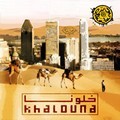In just a few days, measles has killed at least eight children in the Tanger-Tétouan-Al Hoceïma region, where several others are reportedly affected. Each month, around a hundred medical treatments are recorded, according to data provided by provincial authorities. In 2023, the same region, as well as Beni Mellal-Khénifra and Souss-Massa, have identified epidemic outbreaks, thus questioning the vaccination coverage and adherence to vaccination campaigns against childhood diseases.
Dr. Tayeb Hamdi, a physician and researcher in health policies and systems, believes that the situation is symptomatic of a relaxation, the underlying causes of which must necessarily be defined. Since the Covid-19 health crisis, a global trend suggests a general resurgence of vaccine hesitancy, which partly explains the return of an epidemic that Morocco had so far managed to contain. According to the specialist, «it is necessary to understand at the Moroccan level all the reasons behind this widespread under-vaccination and this relaxation of epidemiological surveillance».
According to Dr. Hamdi, «the recent outbreak of several measles case clusters, with fatal cases among affected children, is linked to a decrease in children's vaccination coverage and the decline in the level of epidemiological surveillance of such diseases». He emphasizes that «an unvaccinated child (zero dose) or incompletely vaccinated (one dose instead of two) is highly exposed to catching the disease». He warns that a «population whose measles vaccination coverage is below 95% will experience outbreaks and epidemics of measles in a continuous manner».
In Morocco, during the previous decade, these efforts have significantly borne fruit. According to figures from the Ministry of Health, the measles epidemic was controlled between 1987 and 2014, as part of the National Strategy for the Elimination of Measles and the Control of Rubella. After accumulated peaks of 10,723 cases in 1999 and 10,841 in 2003, the evolution of vaccination coverage allowed the infection curve to decrease from 2008. By 2013, vaccination coverage had reached 98%, with only 98 cases for the year.

Thanks to the National Immunization Program in Morocco and accelerated vaccination campaigns since the 1990s, the mortality rate of newborns and those aged 28 months or younger has decreased from 35.9 per 1,000 births (1990) to 13.6 (2019).
Efforts to return to pre-health crisis figures
Referring to data from the Ministry of Health and Social Protection, Tayeb Hamdi points out that now, «no region» in the country «currently reaches the necessary 95% coverage». According to him, «the rates in some regions are far below this figure». Last March, the supervising ministry warned about the spread of measles, thus announcing a vaccination campaign.
As part of monitoring the epidemiological evolution and to contain contamination, the department reported «the emergence of new» cases, hinting at «a more extensive spread of the virus». In this sense, it recalled the alerts from the World Health Organization (WHO) about «global regressions» in surveillance systems and the decrease in vaccination rates, as no country is immune to the threat of measles.
To this end, the ministry announced «the deployment of an extended national campaign to strengthen vaccination against measles». The aim is to «limit the spread of epidemics and strengthen the response», with the goal of «restoring children's vaccination levels to those observed before the Covid-19 pandemic, which led to a decrease in vaccination coverage rates in most regions and provinces of the Kingdom».
In this regard, Dr. Hamdi assures that «vaccination is safe and effective», and it remains «the best way to prevent infection, illness, and measles epidemics». From 2000 to 2021, the measles vaccine saved 56 million lives worldwide.
In this context, the supervising ministry called for the adherence of families, starting with parents and guardians, to keep their children's medical records up to date in health centers, where the vaccine is administered free of charge.




 chargement...
chargement...












